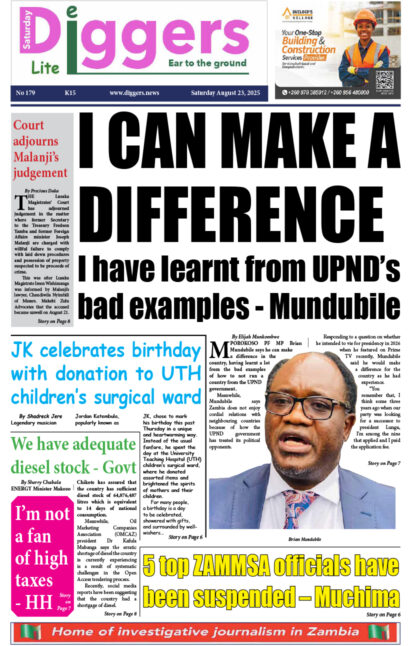ANTI-Voter Apathy Project (AVAP) executive director Richwell Mulwani says government should address the recommendations that were made by the Commission of Inquiry into the 2016 voting patterns to avoid a possible repetition of violence and voter apathy ahead of the 2021 general election.
In an interview, Mulwani said it would not be right to go to the next polls without addressing the findings of that Inquiry.
“It is very important to address all the issues that arise from whatever inquiry that the government may undertake. The report of the Commission of Inquiry into the voting pattern was a very serious undertaking to inform us about what happened in 2016 and to make sure that there is no repeat of the same in 2021. And now, we are a few months down the line for us to go to the next polls and we still don’t know how we are going to address the issue of violence because it came out prominently in the report. And a few individuals, including prominent persons in that report who belong to political parties, were cited in that report to have had an input to ignite the problems that were seen in the election,” Mulwani said.
He said there was need for Zambians to go to the next polls in a peaceful environment.
“We want to see a situation where this problem is resolved. Political parties are key stakeholders and they are the ones that were very much cited in the report. We want to advise the government that, let us come to the table and start addressing those issues now because a repeat of that will not help this nation. It will see this country divided. It won’t help this country. We want to see a situation where the police, political leaders and all stakeholders are engaged and point out these issues that came out from that report so that the recommendations that were made must be addressed. We need to go to the polls in a very peaceful environment,” Mulwani said.
He, however, cautioned that if the issues raised in the report remained unresolved, it would encourage those who were previously cited to repeat their violent actions ahead of next year’s polls.
“The hate language that was used during the campaigns, the tribal sentiments, the violence that was ignited as a result of all those issues that were highlighted are very important and they need to be addressed, and the time is now. We don’t need to go to the polls with past pain and anguish where people are breathing fire and are sitting on the volcano! We want to see a situation where people can greet each other, campaign together and live in harmony, and where those that lose can accept defeat in a fair and transparent manner. In other countries, this is what has caused a lot of problems because political leaders are not able to sit together. So, as AVAP, we are worried that if these issues are not addressed, surely, it will compel those people to repeat the same thing because we have not seen any punishment that has been given to those that were involved,” said Mulwani.
“If this violence is not addressed, I don’t expect people to go and vote because they can’t withstand the pressure that they see when cadres are up in arms. Voters would rather distance themselves by staying in their homes. Imagine, we have the disabled who cannot run, expectant mothers and so on who cannot run for safety. That is going to be a very unfortunate situation because we are known to be a very peaceful country. We need a higher voter turnout without any violence.”
The Commission of Inquiry into Voting Patterns and Electoral Violence revealed that PF deputy secretary general Mumbi Phiri, among other high-profile political players, influenced voting patterns by campaigning, adopting candidates and organising party structures on tribal and regional lines prior to the 2016 general election.
It also revealed that the regional voting patterns and violence that characterised the 2016 presidential and general election was necessitated by a number of factors, including influence of traditional leadership and the use of hate speech perpetrated by Phiri and then-PF deputy spokesperson, Frank Bwalya, who is now Zambia’s High Commissioner to Australia.























